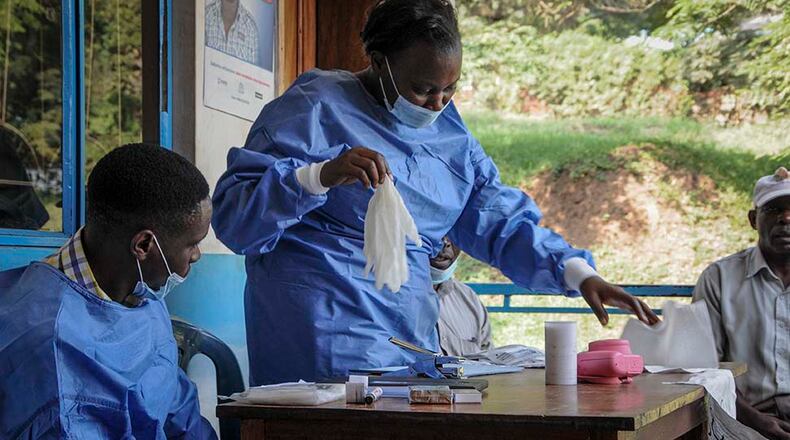The economy, Medicare and immigration. These are important topics we’ve heard about for months from the Democratic presidential candidates and I expect we’ll hear more around such topics at tonight’s debate in Atlanta.
But a critical issue overlooked thus far is how the next President will tackle today and tomorrow’s infectious disease epidemics — an issue particularly urgent for Atlanta, which is home to more than 35,000 people living with HIV.
As Emory University President Claire Sterk wrote, "Atlanta sits at the epicenter of the HIV epidemic in the U.S. Some metro area zip codes report HIV/AIDS rates six to eight times higher than the national average." HIV/AIDS is a global health issue, but here it is also a local issue: HIV is a Top 5 leading cause of death for black men in Georgia aged 25 to 54 and Black women aged 35 to 44.
Dr. Wendy Armstrong and I recently described the challenges of reaching the HIV treatment targets of 90-90-90 (90% of those living with HIV are diagnosed, 90% of those diagnosed are treated and 90% of those on therapy remain on therapy and with their virus well controlled) by 2020 in the Southern United States. While antiretroviral therapy makes HIV a manageable chronic disease (not a death sentence!), treatment is not equally accessible to all due to social determinants of health, stigma, addiction and a broken healthcare system, each of which is shaped by policy. Until all are addressed, we will struggle to end this epidemic.
The President’s End the HIV Epidemic initiative promises more funding to address the HIV epidemic in our most impacted communities but the current administration’s policies are often counter to ending the epidemic. Current candidates should commit to renew the End the HIV Epidemic initiative and reverse policies that discriminate against persons most at risk for or living with HIV.
Barriers to ending the HIV epidemic are true not only for Atlanta, but on a global scale. Atlanta is a part of a global community, where today, more than 2,000 people will die from AIDS-related illnesses. Renewed U.S. leadership in the fight against HIV/AIDS globally is our best strategy for ending this epidemic for good.
Beyond HIV, pandemics due to tuberculosis and malaria surge on and the next infectious disease pandemic looms around the corner with ongoing outbreaks around world, such as Ebola. The United States is not insulated from readily transmissible infectious disease outbreaks, no matter where they occur, as evidenced by Ebola and Middle Eastern Respiratory Virus (MERS) entering the U.S. in 2014.
At tonight’s debate, I call on all candidates to commit to a bold global initiative to halt today’s pandemic killers of AIDS, tuberculosis and malaria and prevent current outbreaks from becoming tomorrow’s pandemics. I join many other scientists, doctors, health and environmental activists, and faith groups around the country in this call to the candidates: commit to ending the pandemics of AIDS, tuberculosis and malaria around the world — including here in Atlanta — by doubling U.S. investment in a transformative whole-of-government effort to both end these pandemics and ensure low- and middle-income countries can detect diseases and advance the health of their people before outbreaks become pandemics. Protecting American lives depends on lifting up the health of the most vulnerable, globally, through strategic investments in health workforce, infrastructure, laboratories, and data systems.
Fighting HIV and other infectious diseases in Atlanta and globally is not only a public health imperative but fundamentally an issue of equality and human rights. Pandemics thrive on and drive inequality and injustice. LGBTQ people, people of color, the poor, migrants, women, and young people bear the biggest burden.
In our globally connected world, efforts to end these pandemics are more important than ever. Atlantans have seen the impact of HIV locally when a proactive approach is not taken. Tonight’s debate is the right time for candidates to commit to ending these pandemics here and around the world.
Dr. Jonathan Colasanti is an assistant professor of medicine at Emory University and associate medical director, Infectious Disease Program, Grady Health System.
About the Author
Keep Reading
The Latest
Featured


